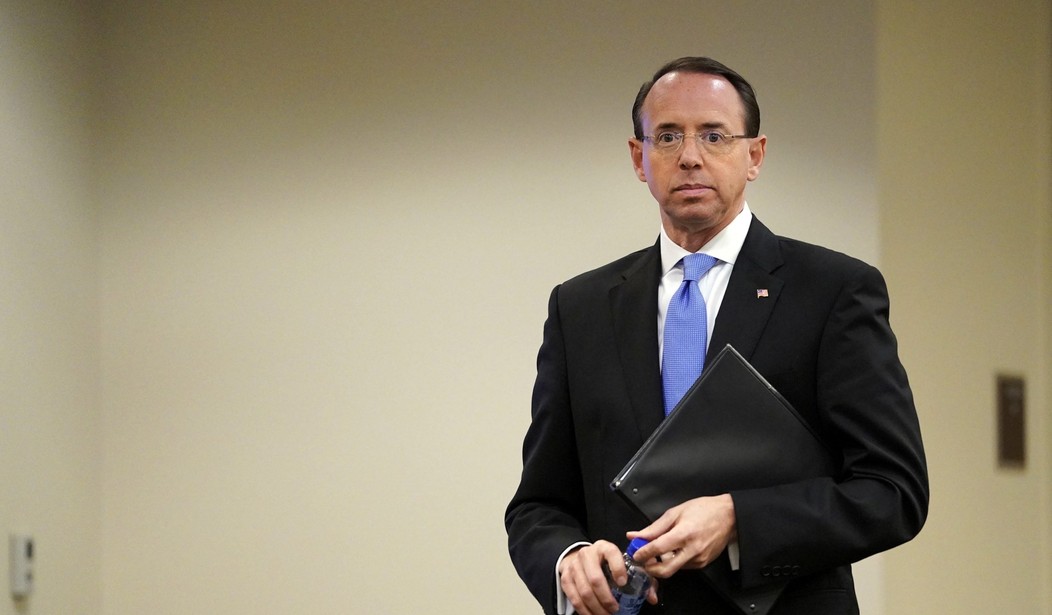WASHINGTON — Deputy Attorney General Rod Rosenstein stressed at a roundtable discussion on better identifying and reporting hate crimes today that “simply because hate crimes are not reported does not mean they are not happening” and prosecutors and law enforcement need to “understand the reasons that keep victims from reporting hate crimes.”
The Justice Department launched a new website portal today with education on hate crimes, information about prevention and policies, and news about the department’s effort to combat hate crimes.
Over the past decade, the DOJ has levied hate crimes charges against more than 300 defendants.
The DOJ forum came two days after the massacre at the Tree of Life congregation in Pittsburgh in which 11 Jews were killed. Suspect Robert Bowers, according to the affidavit, told an officer that he wanted to kill Jews because “they were committing genocide to his people.” Bowers faces 29 counts, including 11 counts of obstruction of exercise of religious beliefs resulting in death.
Rosenstein said the hate-crimes effort “unites two of the department’s highest priorities: supporting our state and local law enforcement partners; and vigorously prosecuting bias-motivated crimes.”
“We convened this session as a roundtable, rather than a series of lectures, because the best strategies usually emerge through interactions among law enforcement colleagues,” he said. “We hope to foster relationships that will allow you to partner with the Department to stop hate crimes in your community so that together we can make all neighborhoods safer.”
Among the roundtable participants were the parents of Matthew Shepard, who was beaten, murdered and tied to a fence post outside Laramie, Wyo., 20 years ago for being gay. Shepard was interred at the National Cathedral this past Friday.
“I am grateful to Matthew’s parents for joining us today to discuss their important work to prevent hate crimes. Their work stands as a living memorial to their son,” Rosenstein said. “A few months before Mr. Shepard’s death, white supremacists in Jasper, Texas, killed an African-American man named James Byrd, Jr., for no reason other than the color of his skin. Outrage about the deaths of Mr. Shepard and Mr. Byrd inspired the passage of the Shepard-Byrd Hate Crime Prevention Act. Yesterday marked the 9th anniversary of that law.”
The Hate Crimes Enforcement and Prevention Initiative, led by the DOJ’s Civil Rights Division, is “taking on the challenging task of addressing the gap in hate crime statistics,” he said, noting that 88 percent of agencies reported no hate crimes to the FBI in 2016 and the DOJ is reviewing the accuracy of that data.
“We also need to understand the barriers that law enforcement officers and agencies face in reporting hate crimes to the FBI. Together, we can discover ways to improve the reporting of hate crimes so that we can more effectively target our resources to the places they are most needed.”
The National Institute of Justice is granting $840,000 to the University of New Hampshire to conduct a wide-reaching national survey of 3,000 law enforcement agencies and 250 prosecutors about hate crimes, local policies, and disposition of cases.
Rosenstein said the information gleaned from the study “should help us to develop more strategic and targeted approaches to prevent hate crimes.”
“So let us move forward with a renewed commitment to the principle that every American should enjoy equal protection of the laws, and should be free to live and worship in safety,” he declared.









Join the conversation as a VIP Member